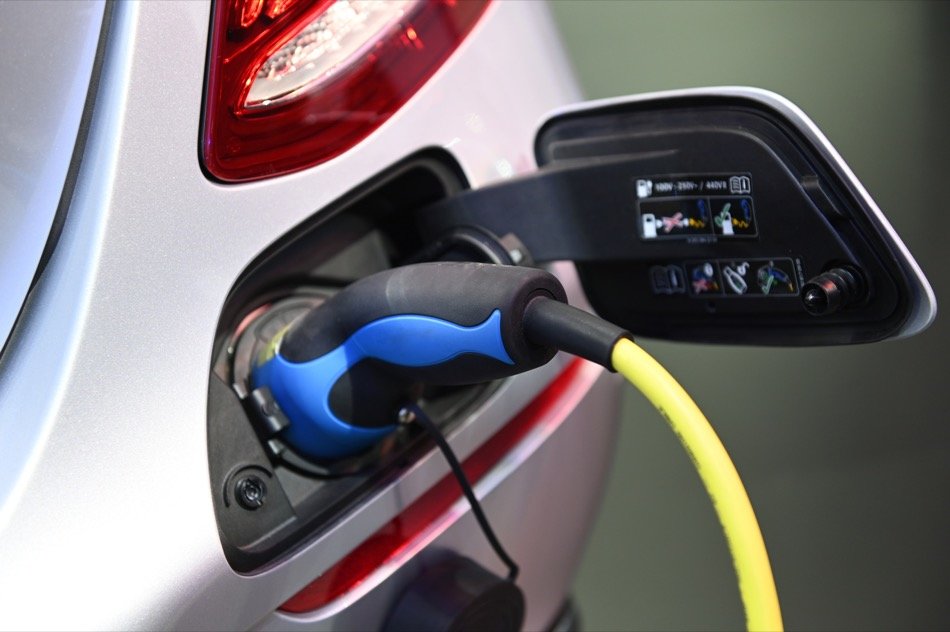Installing an Electric Car Station In Your Garage: What You Need to Know
Posted by Justin Havre on Tuesday, January 8th, 2019 at 10:23am.
 Homeowners have gotten on the home tech bandwagon. In addition to peoples homes, environmental concerns have driven many homeowners to purchase electric cars in the last few decades. While these vehicles are much better for the environment than cars that run on gasoline, they can present some logistical challenges. Charging in the home can become inconvenient if the homeowner doesn't own an electric car charging station. If you're a home owner with an electric vehicle, here's what you need to know about installing an electric car charging station in your garage.
Homeowners have gotten on the home tech bandwagon. In addition to peoples homes, environmental concerns have driven many homeowners to purchase electric cars in the last few decades. While these vehicles are much better for the environment than cars that run on gasoline, they can present some logistical challenges. Charging in the home can become inconvenient if the homeowner doesn't own an electric car charging station. If you're a home owner with an electric vehicle, here's what you need to know about installing an electric car charging station in your garage.
Is It Possible to Charge Your Car Without a Dedicated Charger?
One of the first things that many homeowners want to know when the time comes to install a dedicated charger is whether or not the charger is necessary. Is it possible to charge an electric car without installing a special device for doing so? The answer is yes. Electric cars have a standard plug that can be inserted into any wall outlet that delivers 15 amps of power. This type of charging is known as level 1 charging. All you really need is a well-organized garage.
Although this type of charging is convenient, it's also very slow. Most vehicles take between 8 to 20 hours to charge at level 1, which is not realistic for people who need to use their vehicles every day to get to work.
What are the Other Charging Options?
There are other charging options for those who need a faster charge. Level 2 charging stations require a dedicated circuit and a special plug. Most vehicles can be fully charged in about 6 hours with level 2 charging, so for many electric car owners, this is adequate.
There is a third type of charger, called a level 3 charger, which can charge a car battery fully in about an hour.
What Do You Need to Know About Installing a Charging Station?
Electric vehicle owners who want to install a charging station in their home must first hire a professional who has experience installing charging stations in residential settings. Installing a charging station in a home may require a permit, so homeowners should ensure this gets done. All equipment used in the car charging station must be certified for use in the home.
Installing an electric car station in the home can cost several thousand dollars. However, it's important to note how much money electric vehicle owners save just by driving a car that does not require gas. A typical electric vehicle owner will spend about $300 per year on electricity to charge their vehicle, versus the $1,000 to $2,500 they spend per year on gasoline.
This savings can build up over time. Once the charger installation and the electric vehicle itself are paid for, electric vehicle owners may spend far less on transportation than people who own gasoline-powered vehicles.
How Far Will an Electric Car Go On One Charge?
The distance an electric car will travel on one charge depends on the size and weight of the car, make and model, battery size and whether or not the car is a pure electric vehicle or a hybrid. Car owners will have to look up the specifics about their particular car to find out how far their car will go on one charge.
It's important for electric car owners to note that they don't have to charge their car battery all the way every time, so if they want to charge it partially at home and charge it the rest of the way elsewhere, they can do this.
Do You Have to Charge At Home?
There are many public charging stations, so electric vehicle owners who don't want to install a charger in their home can use public chargers instead. However, using public chargers is not a practical long-term option for many electric car owners. The need for a more convenient charger generally leads many car owners to install one in their garage. Not only is this convenient for electric car owners, it also boosts the value of their home, as many home buyers appreciate this green upgrade.
If you're a West Calgary homeowner who is thinking about installing an electric car charger in your home, contact a licensed electrician contractor. Doing this helps ensure that your electric car charging station will be installed properly. Your electrician will be able to do the work safely and in a way that follows local building codes. For more information about installing an electric car charger, contact a professional today.

